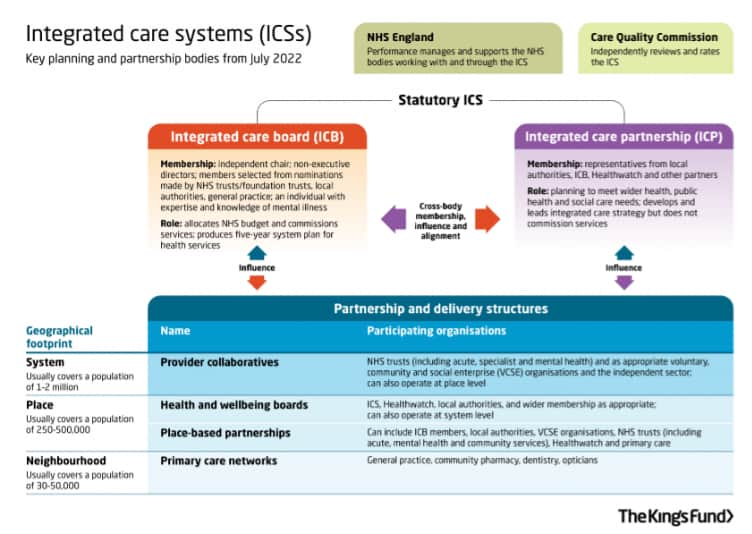The Tories took over after many years of steady growth … and then decided that the only solution to the impact of the financial crash was austerity. Which is fundamentally the way to reduce an economy and not grow one. Austerity was a label under which public services, public spending and public servants would be cut dramatically. All with no effect on the national debt. The effect it did have was to force many to be paid less in real terms now than was the case before the Tories decided that they were ‘fiscally responsible’.
PS sorry if you dislike me being in France, France & the French, and me identifying with people who are British , which I do because I am British. I can’t help you there.
If you don’t like austerity I’m surprised you’re in support of the EU then. There’s loads of articles regarding the EU and imposing austerity on countries. This is just one:
I’ve got absolutely no problem with you being in France and I wish you and all the French people the very best. All I’ve said is I find it confusing the way you keep swapping about one minute you’re a French citizen the next you’re on expert on telling the Brits how they should be.
A couple of months ago the media was saying it was going to be a dark and dull Christmas as people would not be putting Xmas lights up on their houses due to high electricity prices.
I am happy to report that that is a load of BS because we just drove home in the dark and I think the lights this year are the best I’ve seen ever! Our village alone looks like a winter wonderland with hedges, fences, roofs, windows, trees all strung up with fairy lights. 



Folks are spending a tenner of the £66.00 monthly fuel allowance on the lights, fair play to them.
I’m glad we’re all helping each other out even though we all have our own difficulties:
is that worthy of a touche?
I’m not a French citizen. I have been granted a right to live, and if I want to work, in France after applying within the withdrawal agreement rules. Same as many central Europeans have done in the UK. I am an immigrant.
I am not an expert but it is easy to observe what has been happening in the UK. I visit the UK a lot. As well as reading updates on what is happening there. Observation, rather than assumed knowledge, tells me that all is not well. See my previous post on these ills and the causes.
Why do you direct posts at me, rather than at the arguments? I’ve not criticized you or questioned your right to have a point of view.
“tipped”
What the bleedin heck does that mean? It is a long way from fact or an actual event. And given it is the Express doing the tipping, I’m going to suggest it is an empty claim.
So are you trying to say that the UK haven’t been exporting energy to France? That has actually happened, so if you read the post properly you would have ignored the bit that hasn’t actually happened, but concentrated on the bit that has.
Merry Christmas ![]()
Maybe the FT is more preferable:
https://www.ft.com/content/517f2786-2acf-4d28-9dc7-fc5db835479e
Britain’s power system has been riding to the rescue of mainland Europe in recent months, becoming a net exporter of electricity for the first time since 2017 to make up for record shutdowns of French nuclear reactors. Data from National Grid show that Britain has been a net exporter of electricity via subsea cables that connect to countries including France, Belgium and the Netherlands every month since the start of April.
You haven’t seen the houses around here!  . £10 wouldn’t cover one evening’s lights!
. £10 wouldn’t cover one evening’s lights!
The trade works in both directions
Bangs head against the wall. Really can’t believe you’ve just posted that, I’ll let you work out the difference now as to 2021.
The difference, for the European energy market, is first and foremost the war in Ukraine and the actions to stem energy buying from Russia. Whilst it is principally gas that Erope buys from Russia a significant amount of that gas is used for electricity production. France has had an additional challenge as its nuclear power output has been reduced this year. This is due to a record breaking hot and dry year which meant that the major rivers were too low to allow the plants to run at full capacity.
My point about the sales of energy from the EU to the UK is that this is an established market where the sales work both ways and in recent years this energy flow has been from the EU to the UK. 2022 has been an exceptional year.
This thread is about a crisis in the UK and how it is impacting the majority of people. The sale of energy across borders is not affecting the price people pay for energy. The UK has a crisis in its energy sector insofar as prices to consumers have gone up massively - greatly adding to the cost of living crisis. In France our electricity prices went up 4% this year.
Remind me, what was the point you were trying to make?
That I think it’s nice that countries help each other out in a crisis.
And that’s why I started my initial post with:
I’m glad we’re all helping each other out even though we all have our own difficulties:
So what’s your point?
Thanks for clarifying that, I missed that aspect of your post. And, moreover, I agree.
Looks like we’re not alone:
he Prime Minister’s spokesman just told a sceptical Lobby that it was a fact that global healthcare systems are facing significant strain and this was not unique to Britain. Though, as is often the case with the British media, it’s worth looking beyond the usual horizon of the M25. As a winter strain hits the NHS, press coverage is awash with catastrophic headlines. The BBC repeats claims that the NHS is “on a knife edge” as The Guardian decries an “intolerable crisis” – their columnists, unsurprisingly, are clamouring for healthcare to be put on a “war footing”. The BMA has been quick to capitalise on the whipped-up frenzy, accusing the government of making a “political choice” leading to patients dying unnecessarily, as Labour pins it on “mismanagement”. *The Liberal Democrats are urging the government to pointlessly recall parliament early…
That the prevalence of health system pressures is a global phenomenon is borne out in the world’s headlines:
- Canada’s hospitals are at “full capacity”, they also face a shortage of doctors and nurses. The president of the Ontario medical service says they have a “health-care system that’s broken”. It is being called a “national crisis” as provincial leaders urged Trudeau to meet them and discuss solutions. Socialised healthcare in Toronto sees patients waiting up to 45 hours for emergency treatment, with 90% waiting 12 hours.
- The German healthcare system is being “pushed to its limit” due to a rise in viral infections, with the scene in children’s hospitals especially “dramatic”. This is according to the head of the board of the German Hospital Association.
Italy’s healthcare system has a *“sustainability crisis”. - France is facing a “triple epidemic”, according to their healthcare minister. The country has hospitals in crisis, medical deserts and a shortage of doctors and nurses. This is all the while their GPs are continuing their walk out.
- The Swiss healthcare system is “pushed to the limit”, with children’s hospitals under “massive pressure”. This is despite the fact it remains a favoured destination of European healthcare professionals.
American hospitals are the fullest they’ve been over the pandemic, whilst the system faces a *“fiscal implosion”.
Ireland is suffering “record waiting times”. Healthcare boss Damien McCallion said emergency departments are becoming extremely busy due to the *“unprecedented combination of very high levels of flu, Covid-19 and other respiratory illnesses in the community”.
Despite what the BBC might have you believe, coronavirus, flu and strep A aren’t a uniquely British creation of the Tory government…
Wendeey are the other countries’ healthcare systems also going through a massive reorganisation following a health and care bill?
Let me know whether this makes sense :
The policy intention is that commissioners and providers should increasingly be working hand in hand to plan care for their populations. While distinct commissioning and provision responsibilities still formally sit in separate organisations, in practice the division is becoming increasingly blurred (for example, as providers are represented on the ICB). Fundamentally, a key principle in the reforms is that providers are part of the ICS – just as much as the ICB and ICP are – and as such they are being asked to take on wider responsibilities for the performance of the whole system.
or this one :
Within the new statutory ICS structures, the involvement of local government has been formalised through the ICP and through the direct representation of local authorities on the ICB. In addition, ICSs must draw on the joint health and wellbeing strategies of their local health and wellbeing boards in producing their integrated care strategies and five-year system plans.
So do you think it’s working so far?
How will we know if ICSs are working?
ICSs will be accountable nationally to NHS England, via their ICB, for NHS spending and performance. They will be expected to achieve financial balance and to meet national requirements and performance targets.
In addition to these national accountabilities, ICSs also have the potential to nurture different forms of oversight to drive local improvements in care. This is because ICSs are partnerships in which local organisations exercise collective leadership and work towards developing a sense of mutual accountability for resource use and outcomes. This may take the form of peer challenge and support from partners within an ICS, drawing on local data on performance and outcomes.
Importantly, to really understand whether their work is making a difference, ICSs will need to use insights from local people including patients, service users and families. As we have argued in previous work, the best way to understand whether integration is delivering results is through the eyes of people using services.
the conclusion :
Where next?
The coming months will be a critical period for the development of ICSs as they begin operating as statutory bodies. Ultimately, whether or not these reforms succeed will come down to how they are implemented locally, and whether the right national conditions can be created to support their work.
It won’t be easy to find the bandwidth to do the hard work of changing ways of working at a time when health and care services are under such pressure, and there is a risk that established ways of working will be recreated within the new structures. To avoid this, ICSs will need to keep sight of their core objectives and the ethos of system working behind their development.
Evidence from previous attempts to integrate care indicates that these changes will take time to deliver results. This means that local and national leaders need to make a long-term commitment to the development of ICSs and avoid the past mistake of moving swiftly to the next reorganisation if desired outcomes are not rapidly achieved.
SOURCE :


